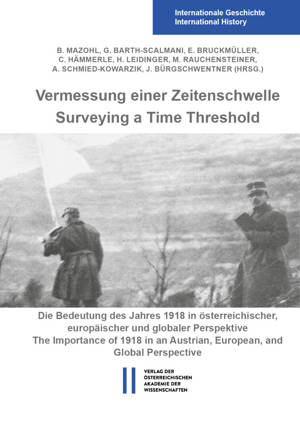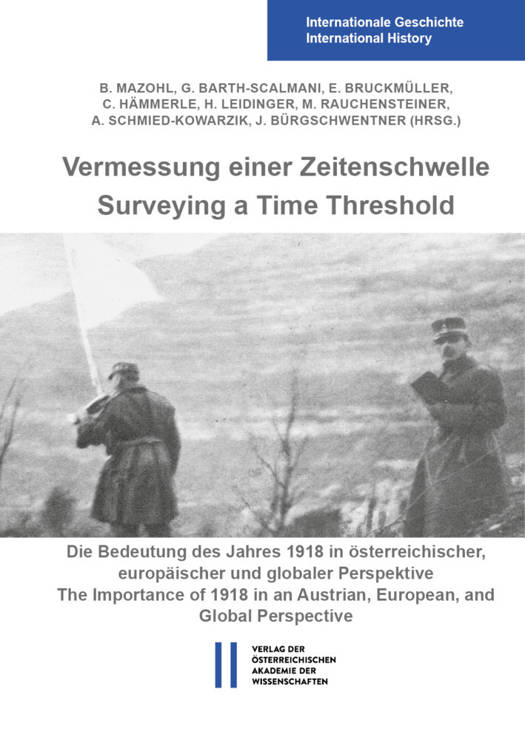
- Afhalen na 1 uur in een winkel met voorraad
- Gratis thuislevering in België vanaf € 30
- Ruim aanbod met 7 miljoen producten
- Afhalen na 1 uur in een winkel met voorraad
- Gratis thuislevering in België vanaf € 30
- Ruim aanbod met 7 miljoen producten
Zoeken
Vermessung Einer Zeitenschwelle / Surveying a Time Threshold
€ 147,95
+ 295 punten
Omschrijving
This volume is dedicated to the momentous historical threshold of 1918 and its consequences for Austria and Europe, but also for the world beyond Europe. After the end of the First World War, dealing with the consequences of the war and establishing a new peace were not the only tasks; it was also important to convert the social and political ruptures caused by the war into a new order. Great empires fell and a host of states, most of them republican, were born out of them. The United States of America replaced Europe as the major world power and through their president Woodrow Wilson, set the direction for future peace. This volume brings together the contributions from an international conference at the Austrian Academy of Sciences to commemorate the one hundredth anniversary of the end of the First World War. Divided up into five major sections, each comprising four to six articles written by internationally renowned authors, the volume offers insights into the end of the war and the years that followed from multiple perspectives. Taking military- and social-history analyses of the war years themselves as the starting point, the focus is on the political upheaval in the years immediately after the war and on the manifold challenges faced at the Paris Peace Conference. Two further sections address the effects of the war years on the traumatised post-war societies and how these have been dealt with in our subsequent culture of remembrance. A link takes the reader to a recording of a dramatic reading from Franz Theodor Csokor's play "3rd November 1918" from the conference's opening event. The play deals with the fall of the Habsburg Monarchy.
Specificaties
Betrokkenen
- Uitgeverij:
Inhoud
- Aantal bladzijden:
- 492
- Taal:
- Engels, Duits
- Reeks:
- Reeksnummer:
- nr. 9
Eigenschappen
- Productcode (EAN):
- 9783700193838
- Verschijningsdatum:
- 13/12/2024
- Uitvoering:
- Hardcover
- Formaat:
- Genaaid
- Afmetingen:
- 175 mm x 40 mm
- Gewicht:
- 1179 g

Alleen bij Standaard Boekhandel
+ 295 punten op je klantenkaart van Standaard Boekhandel
Beoordelingen
We publiceren alleen reviews die voldoen aan de voorwaarden voor reviews. Bekijk onze voorwaarden voor reviews.







